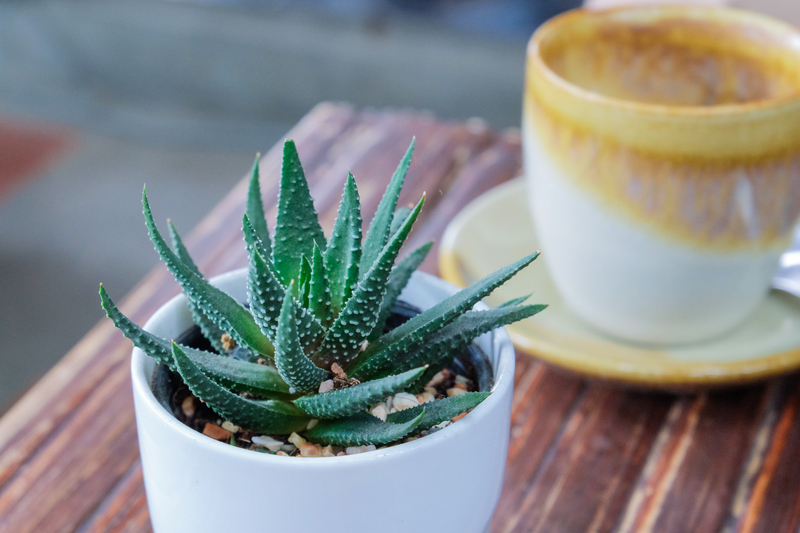Step into the World of Gardening with 9 Must-Know Tips for Beginners
Posted on 11/09/2025
Step into the World of Gardening with 9 Must-Know Tips for Beginners
Are you eager to transform your yard or balcony into a vibrant oasis? Gardening is more than just a hobby--it's a journey into nature, well-being, and beauty. For first-time gardeners, the idea of starting from scratch might seem daunting. But don't worry! You can step into gardening with confidence and joy with these 9 essential gardening tips for beginners. From choosing the right crops to nurturing your green friends, this comprehensive guide will sprout your green thumb in no time!
Why Should You Start Gardening?
Gardening isn't just about plants: it's a rewarding activity that benefits physical health, mental well-being, and our environment. Whether you have a large backyard or a tiny windowsill, stepping into the world of gardening can help you:
- Reduce stress and anxiety levels
- Bring fresh produce and flowers to your home
- Boost your property's curb appeal
- Support local biodiversity
- Enhance your connection to nature

1. Start Small and Simple
One of the golden rules for new gardeners is: don't overdo it! Begin with a manageable plot or a small collection of pots. Focus on easy-to-grow plants while you learn the fundamentals. This way, you'll avoid overwhelming yourself and ensure early success, which will keep you motivated.
- Container gardening: Ideal for those with limited space. Try pots, buckets, or window boxes.
- Raised beds: Great for better soil control and accessibility.
- Simple layouts: A few rows or groupings of plants make maintenance much easier as a beginner.
2. Understand Your Gardening Zone
The key to thriving plants is planting the right crops in the right conditions. Each plant has unique climate needs, categorized into "hardiness zones." Check your region's USDA Hardiness Zone or similar map to choose plants that will flourish where you live.
- Research your local climate: Know expected frost dates and extreme temperatures.
- Pick zone-appropriate plants: Nurseries usually label which plants suit which zones.
- Ask local experts: Garden centers, clubs, and neighbors are invaluable sources of advice.
3. Select the Right Location for Your Garden
Lighting and accessibility are crucial for a successful beginner gardening experience. Most vegetables and flowers need at least 6 hours of sunlight per day. Choose a spot that's easy to access so you'll water and tend to your plants regularly.
- Observe sun patterns: Spend a day noting how much sunlight different areas receive.
- Avoid windy spots: Wind can dry out soil and damage young plants.
- Plan for easy access: Place your garden near your home so upkeep feels less like a chore.
4. Pick Beginner-Friendly Plants
Don't make your first gardening attempt unnecessarily difficult--start with reliable, low-maintenance varieties. As you gain knowledge and confidence, you can introduce more challenging species into your garden.
-
Top beginner vegetables:
- Radishes
- Lettuce
- Beans
- Carrots
-
Easy flowers:
- Marigolds
- Sunflowers
- Zinnias
- Herbs: (Basil, mint, parsley) are perfect for both beginners and small spaces.
5. Invest in Quality Soil
Soil is the foundation of successful gardening--great gardens start with great soil. Healthy soil supports root growth, holds moisture, and feeds your plants. Before planting, use organic matter such as compost, aged manure, or leaf mold to enrich your soil.
- Test your soil: Purchase a simple soil test kit to check pH and nutrient levels.
- Add compost: Compost improves texture, drainage, and nutrient content.
- Avoid "dead" topsoil: Cheap topsoil may lack organic material and beneficial microbes.
Pro Tip: Never work the soil when it's wet, as this can compact it and damage its structure!
6. Water Wisely
Proper watering is essential in the world of beginner gardening. Too much or too little water can be problematic, so finding the right balance is key.
- Water early in the day: Prevents evaporation and reduces disease risk.
- Check soil moisture: Dig a finger into the soil; water only if it's dry below the surface.
- Deep, infrequent watering: Encourages deep root growth and hardier plants.
- Mulch your soil: Mulch helps retain moisture and prevent weeds.
7. Feed Your Plants Regularly
Nutrients are vital for strong, healthy plants. While good soil supplies much of what your crops need, using organic fertilizers or slow-release granules can boost growth and resilience.
- Compost tea: An easy homemade liquid fertilizer full of beneficial microbes.
- Organic options: Fish emulsion and seaweed extracts are gentle for beginners.
- Follow the label: Over-fertilizing can be as harmful as neglecting to feed at all.
8. Stay Ahead of Pests and Weeds
Both pests and weeds can quickly ruin your hard work. Tending your garden regularly keeps problems from spiraling out of control.
- Mulching: Not only conserves moisture, but blocks weeds too.
- Hand-pulling weeds: Easier for small gardens and can be therapeutic.
- Natural pest control: Attract beneficial insects, use neem oil, or introduce marigolds as a repellent.
- Inspect regularly: Look under leaves and along stems for early signs of trouble.
9. Learn, Experiment, and Have Fun!
Every gardener faces challenges: Don't get discouraged if a crop fails or a flower doesn't bloom. The beauty of gardening lies in experimenting and learning from mistakes.
- Keep a garden journal: Record planting dates, successes, and failures for future reference.
- Join a gardening community: Local clubs or online forums offer invaluable advice and camaraderie.
- Try new plants each year: Expand your gardening skills by diversifying your crops and flowers.
- Celebrate your successes: Even modest harvests or the first flower bloom are milestones!
Bonus: Gardening Tools Every Beginner Should Own
- Hand trowel: For digging and transplanting
- Pruning shears: Keep plants tidy and healthy
- Watering can: Essential for precise, gentle watering
- Gardening gloves: Protects your hands from thorns and dirt
- Garden fork or spade: For loosening soil and removing weeds

Common Mistakes for New Gardeners to Avoid
- Overwatering or letting soil dry out completely
- Planting too closely--give plants space to grow
- Ignoring plant labels and seed packets (they're full of useful info!)
- Neglecting regular care--a few minutes a day saves hours of headache later
Conclusion: Step Into Gardening and Watch Your World Bloom
If you're ready to step into the world of gardening, these must-know beginner tips will set the roots for a flourishing experience. Remember, successful gardens are built on patience, curiosity, and the joy of nurturing life. Whether you grow food, flowers, or both, each sprout will boost your confidence and happiness. Soon, you'll be proudly harvesting your first home-grown meal or bouquet--and that's a reward worth every seed sown!
Happy gardening, and may your thumbs grow greener each season!
- Explore local plant nurseries for advice and inspiration
- Share your gardening journey with friends and family
- Don't forget to enjoy the process--and celebrate every tiny victory!
Stepping into gardening for the first time? Revisit these 9 tips often, and watch your world flourish!
Latest Posts
Transform Dark Corners: Vibrant Evergreen Climbers for Shade
Conquer Garden Weeds: Three Proven Techniques for Control
Transform Your Outdoor Space with Fabulous Seating Arrangements
Revitalizing Waste to Enrich Our Earth's Soul
Step into the World of Gardening with 9 Must-Know Tips for Beginners

